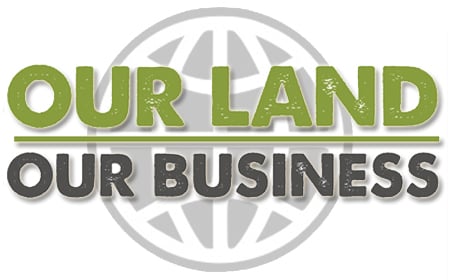Our Land Our Business Campaign

Since 2014, the Our Land Our Business campaign has been demanding the end of World Bank’s Doing Business (DB) ranking and Enabling the Business of Agriculture (EBA).
These ranking systems reward countries for reducing their labor standards, destroying their environment, and providing easy access for corporate pillaging and land grabs. They create a race-to-the-bottom between countries as they clamor for World Bank investment dollars.
Publications
Only six multinationals currently control over two-thirds of the industrial seed sales, and pending agro-industry mergers stand to further consolidate this oligopoly . Further market expansion for these corporations depends on the shrinking of farmer-managed seed systems, which currently provide 80 to 90 percent of the seed supply in developing countries through on-farm seed saving and farmer-to-farmer seed exchange. Enabling the Business of...
The Unholy Alliance, Five Western Donors Shape a Pro-Corporate Agenda for African Agriculture, exposes how a coalition of four donor countries and the Bill and Melinda Gates Foundation is shaping a pro-business environment in the agricultural sector of developing countries, especially in Africa.
Bill Gates' Big Money Attempts to Rule African Agriculture The Bill and Melinda Gates Foundation (BMGF) has become a major player in international aid for agriculture. In 2015 alone, the Foundation distributed over $450 million in grants for agricultural development globally. The BMGF is best known for using its money to push for an agricultural "Green Revolution" in Africa, based on the use of synthetic fertilizers and patented seeds. This...
UK Aid Poised to Wipe Out Smallholder Agriculture In 2015, the UK Department for International Development (DFID) adopted a new Conceptual Framework on Agriculture. This new long-term strategy promotes commercialization and agroindustry development to enable a “rural transition” that would allow the majority of the rural poor to exit “primary agricultural production.” Under DFID’s vision, smallholder farmers, who currently produce 70 percent of...
The Netherlands: Serving Self-interest Over African Farmers In 2010, the Netherlands development aid policy officially shifted its focus from social development to economics and trade, with growing support given to private sector-led initiatives. As the world’s second largest exporter of agricultural products, the Netherlands emphasizes both food security and water as priority development areas to form bridges with the corporate "Dutch expertise...
Pages
Blog
Monday, June 22, 2020 Janhavi Mittal The COVID-19 pandemic has brought up the specter of the Indian partition as the country continues to witness the misery of large–scale human migration on foot and in deathly trains . However, the divide that emerges is not of two nation states but a widening gulf between India’s elite and millions of its second-class citizens — poor, toiling migrant workers. In the midst of this crisis, at a press conference on May 17, 2020,...
Thursday, January 30, 2020 The EBA program was not created to help farmers. The Bank's claims to support farmers via the EBA is inherently contradictory to the own raison d'être of the program. The best way for the World Bank to assist farmers would be to disband the EBA program altogether.
Friday, March 22, 2019 Frederic Mousseau Dear Mr. Deininger, Your recent blog post surprisingly contradicts the prescriptions and policy guidance that your organization, the World Bank, gives to governments around the world, particularly in Africa. You stress the need “to base interventions on land, on solid empirical evidence rather than ideology.” Yet, when it comes to land and agriculture, the World Bank clearly follows an ideological blueprint, which focuses on...
Tuesday, October 2, 2018 Elizabeth Fraser In reading about the tragedy, one detail in particular has haunted me: reports of thousands of buildings collapsing and trapping those inside. This hard fact has stayed with me not just because the thought of being trapped in a collapsed building is absolutely terrifying, but because it unveils the dire impact of the World Bank's pro-business agenda.
Tuesday, May 8, 2018 Flora Sonkin ROME, Italy — April 3-5, 2018, hallways of the FAO (UN Food and Agriculture Organization) buzzed with over 700 representatives from government, civil society, private sector, and the UN agencies at the second agroecology symposium. Picking up momentum from the first symposium in 2014, and the subsequent regional meetings held in Latin America , Sub-Saharan Africa , Europe, Central Asia and Asia and the Pacific , the three-day Symposium...
Pages
Press Releases and Public Statements
Media
Multimedia
Our Land Our Business Video
Right now, millions of people are being thrown off their land because large corporations are being given special rights. The World Bank is driving this trend with its Doing Business rankings.
Learn more


